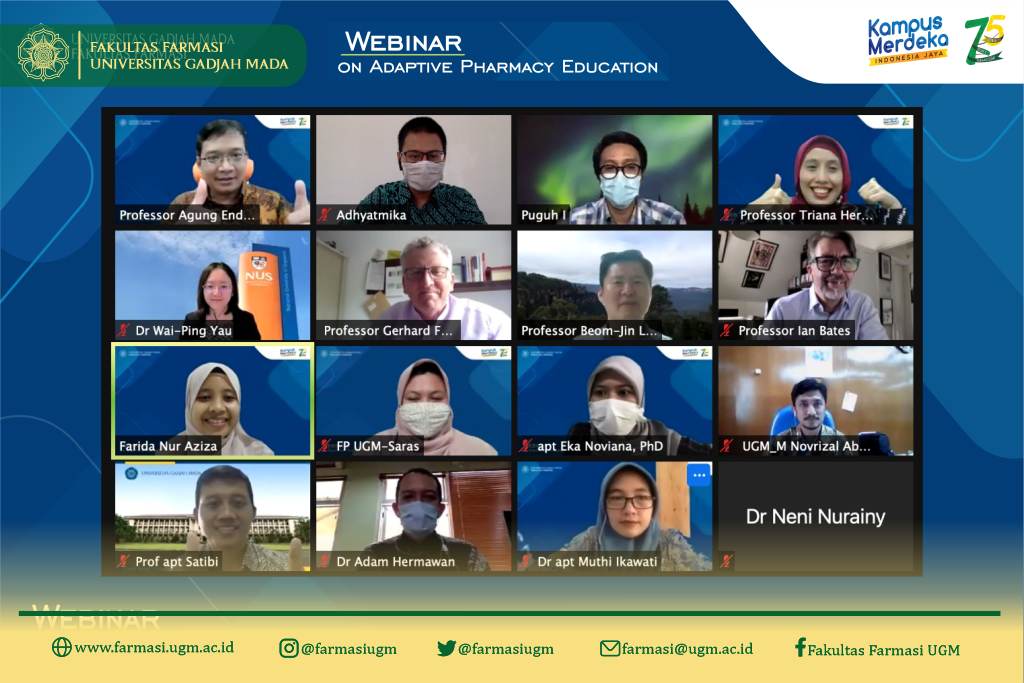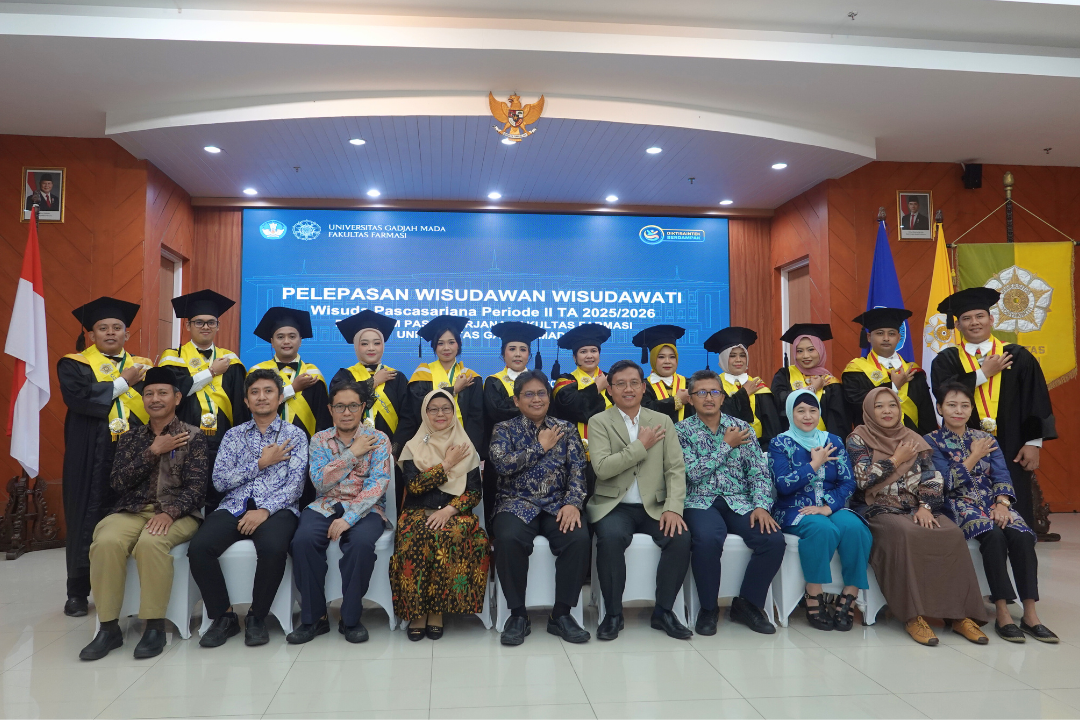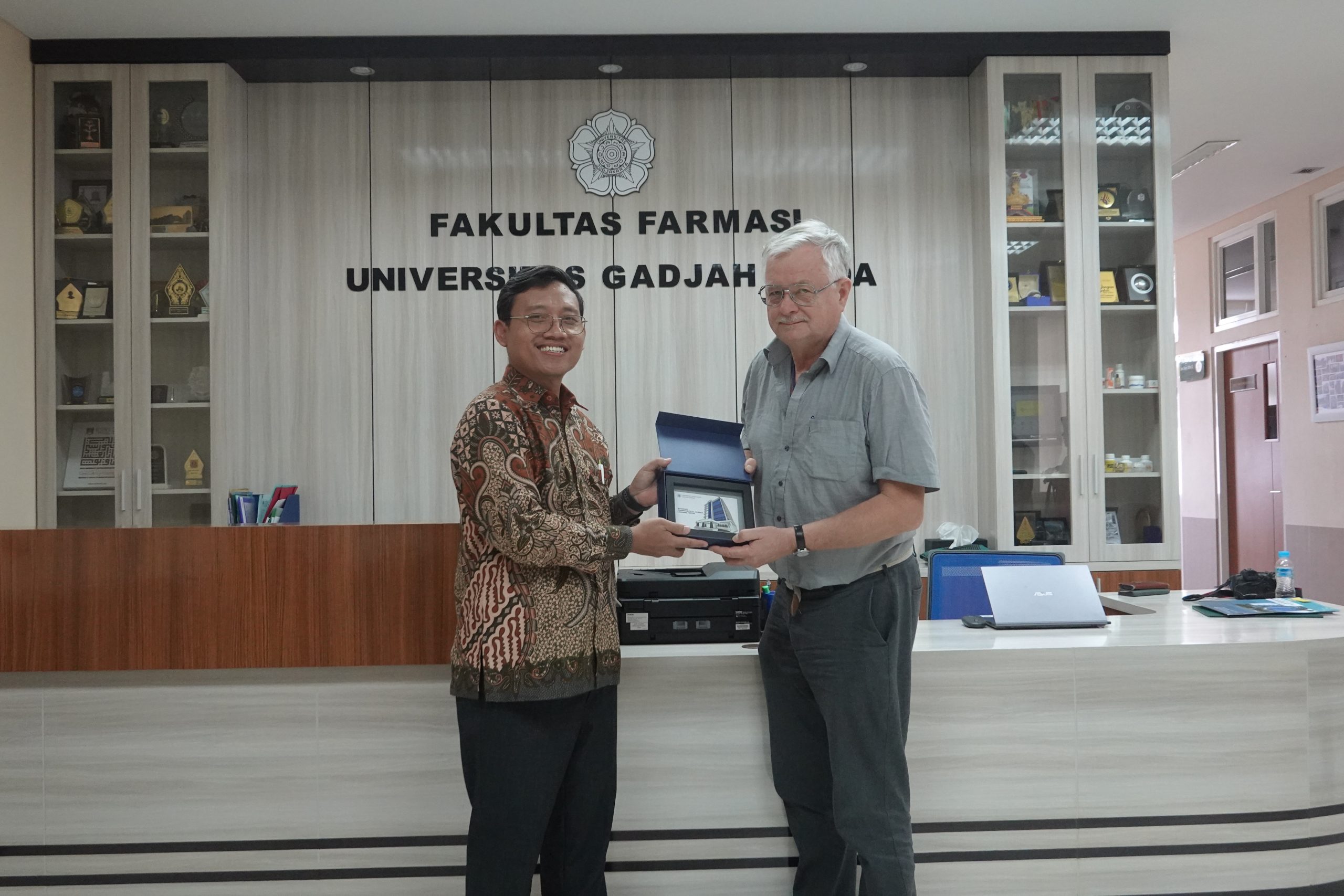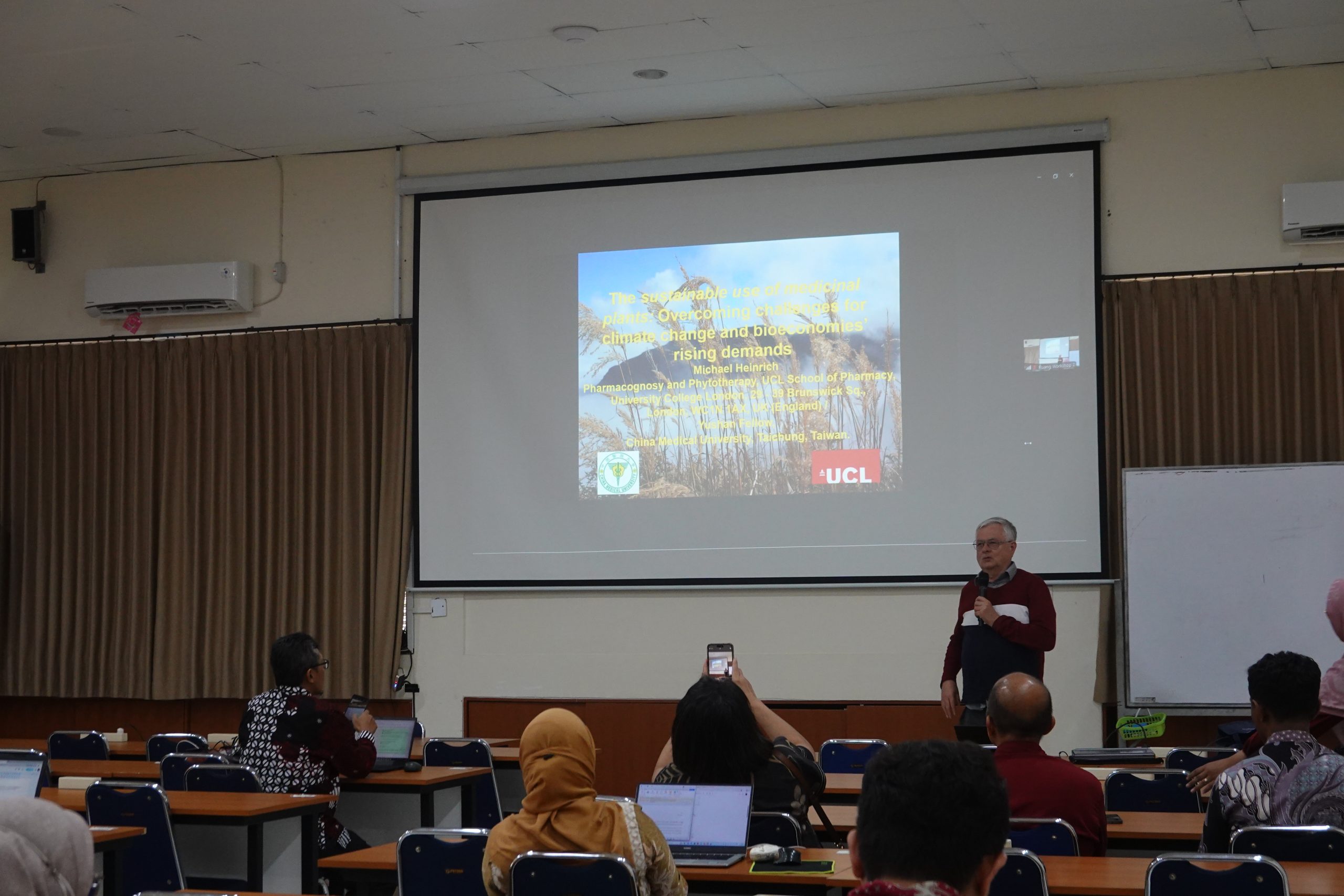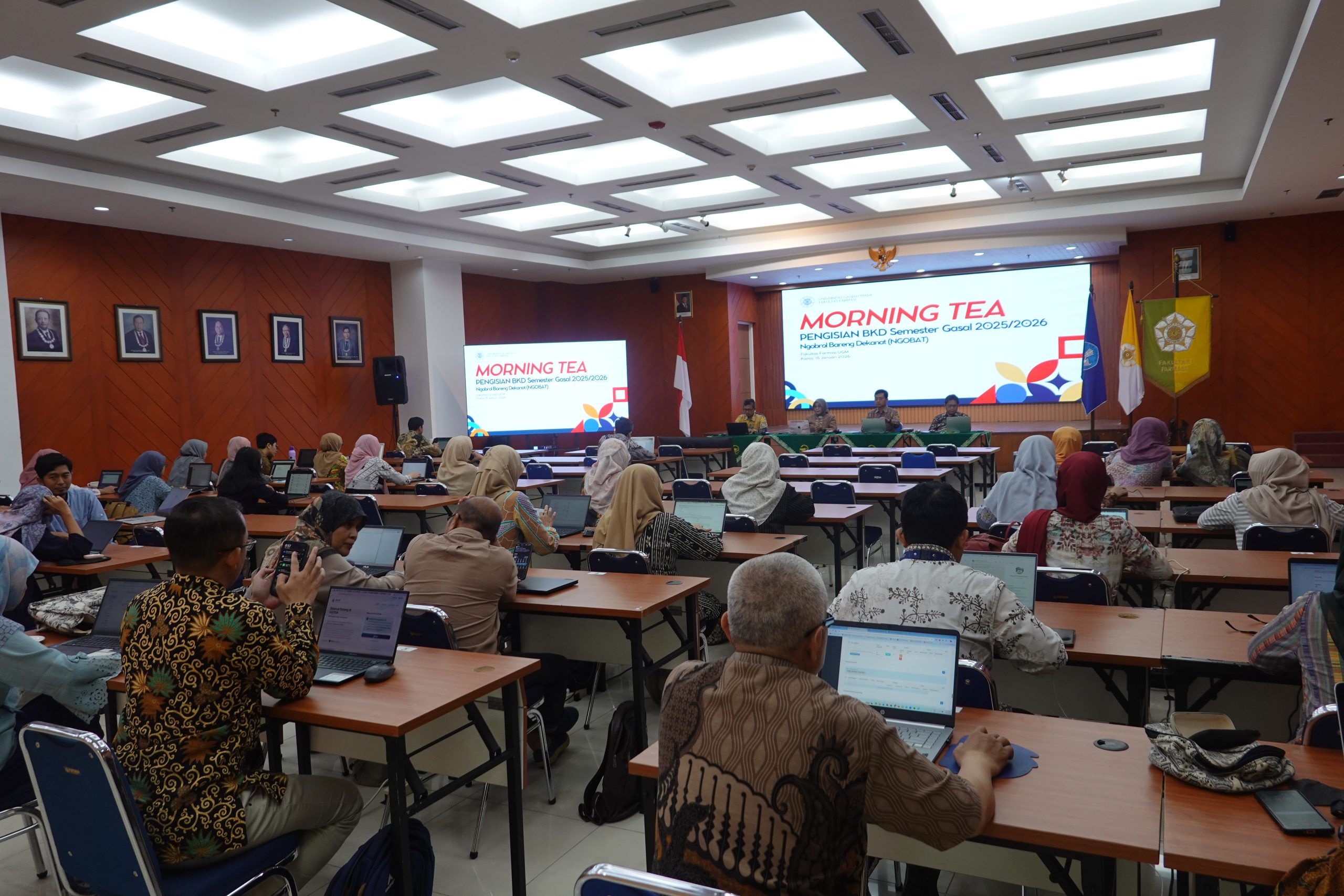Pharmacy UGM – Along with technology and the industrial revolution 4.0, pharmacy higher education must continuously adapt to these demands. Therefore, the Faculty of Pharmacy UGM organized a webinar on Tuesday, June 22, 2021, presenting Adaptive Pharmacy Education as its theme. The webinar received more than 190 registrants and started at 12.30 Jakarta time with the opening remark from Dean Professor Agung Endro Nugroho. In his remark, he extended his greetings and gratitude to the invited speakers and participants, who are mostly pharmacy lecturers from universities in Indonesia.
The first session of the webinar highlighted several intriguing issues to broaden the education curriculum from global perspectives, particularly from Asia and Europe. The first presentation was brought by Professor Beom-Jin Lee from Ajou University, currently serving as the President of the Asian Association of Schools of Pharmacy (AASP), discussing educations of pharmacy in the industrial revolution 4.0. Professor Lee began his slide by defining the key roles of pharmacists and introduced the audience to the AASP as well as the changes made by world-leading universities in the industrial revolution 4.0. The next speaker was from the National University of Singapore (NUS), Dr. Yau Wai Ping, presenting the distinct characteristics of pharmacy and pharmaceutical science education. As the Deputy Program Director of Bachelor in Pharmacy and Pharmaceutical Sciences at NUS, Dr. Yau introduced the programs interestingly before pointing out the differences between pharmacy and pharmaceutical sciences.
Joining from Germany was Professor Gerhard Fortwengel, a professor in epidemiology at the Hannover University of Applied Sciences and Arts. Professor Fortwengel, who is also appointed as a visiting professor at the Faculty of Pharmacy UGM, presented the opportunities and challenges of education and research in public health in Europe. In his conclusion, he mentioned that interdisciplinarity is an important aspect whenever conducting a curriculum review for health-related subjects. The sequence of presentations was continued by Professor Ian Bates from the UCL School of Pharmacy, giving a presentation about the future pharmacy education curriculum development. Professor Bates is the Director of Education Development for the International Pharmaceutical Federation (FIP), leading an international team appointed by FIP working in partnership with WHO and UNESCO, with an outreach of over 4 million pharmacists and pharmaceutical scientists worldwide. The moderator, Professor Triana Hertiani, concluded the first session with Charles Darwin’s quote that, “it is not the strongest that survives, nor the most intelligent. It is the one most adaptable to change.”
Meanwhile, the second session covered several more specific topics, such as digital learning platforms for the pharmaceutical industry, by Dr. Ian Larson from Monash University. Dr. Larson, the Director of Teaching and Learning at the Faculty of Pharmacy and Pharmaceutical Sciences, talked about Pharmatopia, a learning platform for drug formulation and compounding with interactive virtual simulation. The next presentation topic focused on the development of Biomacromolecular research in industry and how pharmaceutical higher education responds to this phenomenon by Dr. apt. Neni Nurainy from PT Bio Farma. Dr. Neni mentioned a lot about the COVID-19 vaccine development and the efforts for the national self-sufficiency in pharmaceuticals raw materials.
As the last speaker representing the Association of Indonesian Pharmacy Higher Education (APTFI), Professor Agung Endro Nugroho gave a presentation about the development of pharmacy schools in Indonesia and the implementation of the new policy freedom to learn- independent campus (MB-KM). The moderator of the second session, apt. Muhammad Novrizal Abdi Sahid, PhD, summarized the presented topics and concluded the session at about 17.00 Jakarta time. (Saras/Humas)

